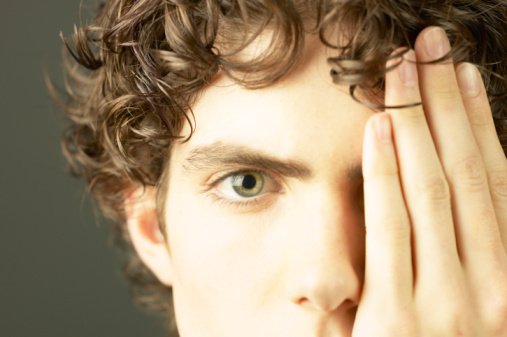People with diabetes are at a greater risk for eye disease.
High glucose levels can damage the blood vessels in the eye, which can lead to vision loss or blindness; many eye diseases have no symptoms in the early stages, so regular eye exams are a must for diabetics.
There are many different eye diseases that can plague the diabetic; this article will focus on three particularly serious eye problems: cataracts, glaucoma, and retinopathy.

Cataracts
Diabetics are 60% more likely to get cataracts, and often at a younger age than people without diabetes. Poor control of blood sugar speeds it up so tight control over your blood sugar and regular eye doctor visits are most important.
Cataracts are cloudy areas that develop within the eye lens, blocking light to the retina where images are processed and making it harder to see. They don’t cause symptoms like pain, redness or tearing. Some might even stay small enough to not affect your eyesight at all.
Large, thick cataracts are generally removed via surgery.
Glaucoma
People with diabetes are 40% more likely to get glaucoma, and the longer you have diabetes the greater your chances are. Glaucoma usually has no symptoms, but it can cause bright halos or colored rings around lights. Left untreated, it can cause an increase in eye pressure damaging the optic nerve. This can result in vision loss and blindness.
Glaucoma can be diagnosed by your ophthalmologist performing these five exams: tonometry (measuring the pressure in your eye), gonioscopy (inspecting your eye’s drainage angle), ophthalmoscopy (inspecting the optic nerve), a field vision test which tests your peripheral vision, and pachymetry, which measures the thickness of your cornea.
Treatment may include eye drops, pills, laser surgery, traditional surgery or a combination of these methods.
Diabetic Retinopathy
Diabetic retinopathy is damage to blood vessels inside the retina caused by blood sugar buildup. During the early stages there is no pain and vision is not likely to change. Over time, the walls of your blood vessels may leak fluid, and blood vessels can form scar tissue and pull the retina away from the back of your eye. This can lead to severe vision loss and possibly even blindness.
Retinopathy is diagnosed during a thorough eye exam using a special dye to find leaking blood vessels.
Treatment in early stages is a laser surgery that seals the blood vessels and stops them from leaking and growing. It can’t restore lost vision, but combined with follow-up care, it can lower the chance of blindness by as much as 90%. Later stage treatment may consist of surgery to remove scar tissue, blood and cloudy fluid from inside the eye, improving vision.
As you can see from these three different eye diseases, keeping control of your blood sugar is most important if you wish to keep your eyesight. Contact us today to find out more about how we can help.
